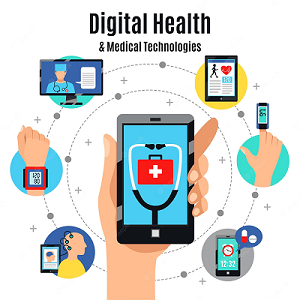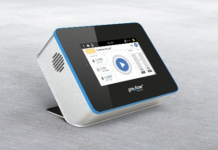
Technology has transformed nearly every sector of modern life, and healthcare is no exception. In particular, digital platforms are reshaping how patients access treatment, manage conditions, and connect with providers. With the growing need for more flexible care models, hospitals, clinics, and mental health centers are increasingly turning to remote solutions that bridge the gap between traditional in-person visits and fully virtual care.
The Shift Toward Digital-First Healthcare
Over the past decade, telehealth has moved from being a niche service to a mainstream expectation. Patients want quick, convenient access to healthcare providers, while organizations are searching for scalable ways to deliver quality care despite workforce shortages. The combination of smartphones, high-speed internet, and cloud-based platforms has enabled this shift. Today, patients can schedule appointments, attend therapy sessions, or monitor chronic conditions without leaving their homes.
The COVID-19 pandemic accelerated this transformation. Healthcare systems that once relied heavily on in-person care needed to adopt virtual consultations and online support programs. What began as a necessity has now evolved into a sustainable model for ongoing patient engagement.
Enhancing Patient Support Through Data and Connectivity
One of the most significant advantages of digital platforms is their ability to collect and analyze patient data in real time. From wearable devices tracking heart rates to mental health apps logging daily moods, technology provides clinicians with valuable insights that go beyond a single office visit. This allows for proactive adjustments in treatment plans and earlier interventions.
For example, a patient participating in an online therapy program may log feelings of stress or irregular sleep patterns. The system can flag these trends for clinicians, who can then provide timely recommendations. These innovations are particularly effective in supporting patients who require consistent care but prefer flexible scheduling or remote access.
Building Flexible Care Models
Healthcare is not one-size-fits-all, and technology has made it easier to deliver customized treatment pathways. Hybrid approaches that blend in-person and online support are becoming increasingly popular. For patients who require structured guidance without full hospitalization, technology-driven outpatient support offers a middle ground. By combining remote monitoring, virtual counseling, and periodic in-person visits, these models maximize convenience without compromising quality.
This flexibility is vital for mental and behavioral health care, where patients often need long-term treatment and consistent check-ins. Digital platforms allow providers to extend their reach while ensuring patients receive the guidance and resources they need.
The Role of AI and Automation
Artificial intelligence (AI) has begun playing a significant role in advancing remote care. AI-driven chatbots, for instance, can provide 24/7 support for patients by answering questions, scheduling follow-ups, or offering coping strategies between sessions. Predictive analytics can also identify patients at higher risk of relapse or hospitalization, enabling earlier interventions.
Beyond individual support, automation streamlines administrative tasks for providers, reducing wait times and ensuring that clinicians can focus on direct patient care. This efficiency benefits both patients and healthcare organizations.
Improving Accessibility and Reducing Barriers
Digital healthcare tools also address one of the most pressing challenges in modern medicine: accessibility. Rural communities, individuals with mobility limitations, and patients balancing work or family responsibilities often struggle to attend frequent in-person appointments. By offering remote consultations, digital platforms lower these barriers and expand access to quality care.
Moreover, language translation tools and user-friendly interfaces ensure that diverse populations can navigate online systems effectively. Combined with secure payment gateways and flexible scheduling, patients now have more control over their healthcare journey than ever before.
Ensuring Security and Trust
Of course, the rise of digital healthcare comes with challenges. Protecting sensitive patient information is paramount. Healthcare providers must comply with strict privacy regulations, invest in cybersecurity, and build trust with patients by handling their data responsibly. Advances in encryption and secure cloud storage have strengthened defenses, but ongoing vigilance is required as threats evolve.
Looking Ahead: The Future of Remote Care
The integration of technology into healthcare will only deepen in the coming years. Virtual reality (VR) therapy, AI-driven diagnostics, and advanced wearable sensors are just a few of the innovations on the horizon. As these tools mature, remote care will become even more immersive, precise, and effective.
Ultimately, the goal is not to replace in-person healthcare but to complement it with digital solutions that expand access and improve outcomes. Patients benefit from greater flexibility, while providers gain tools that help them deliver more personalized and efficient care.
Conclusion
Digital platforms are rewriting the rules of patient engagement and support. By combining accessibility, real-time data, and flexible care models, they are helping healthcare systems meet modern challenges head-on. With continued investment in technology, remote care and technology-driven outpatient support will remain at the heart of a more responsive, inclusive, and effective healthcare future.
















